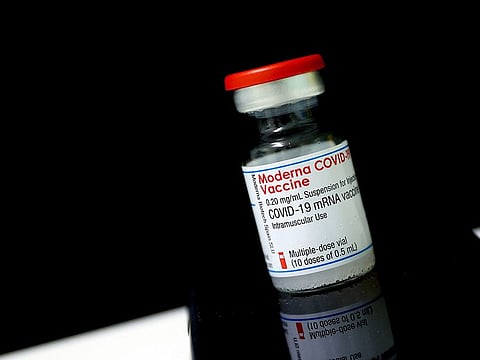Moderna says vaccine still protects against COVID-19 variants
Company collaborated on the study with the Vaccine Research Center at the NIAID

Moderna's vaccine is effective against new variants of the coronavirus that have emerged in Britain and South Africa, the company announced Monday. But it appears to be less protective against the variant discovered in South Africa, and so the company is developing a new form of the vaccine that could be used as a booster shot against that virus.
"We're doing it today to be ahead of the curve should we need to," said Dr. Tal Zaks, Moderna's chief medical officer.
He added, "I don't know if we need it, and I hope we don't."
Moderna reported findings from a study that used blood samples from eight people who had received two doses of the vaccine and two monkeys that had also been immunized.
The British variant had no effect on the levels of neutralizing antibodies - the type that can disable the virus - produced after vaccination. But with the South African form, there was a sixfold reduction in those levels.
Even so, the company said, those antibodies "remain above levels that are expected to be protective."
Moderna collaborated on the study with the Vaccine Research Center at the National Institute of Allergy and Infectious Diseases, part of the National Institutes of Health.
The results have not been published or peer-reviewed yet.
Several new variants of the virus have emerged. A form first detected in Britain is about twice as contagious as the virus identified in China a year ago, and researchers have begun to suspect that it may also be more deadly.
Other variants with different mutations have arisen in South Africa and Brazil, and preliminary studies in the laboratory suggested that those forms may have some degree of resistance to the immunity that people develop after recovering from the infection or being inoculated with the Moderna or Pfizer-BioNTech vaccines.
The British variant has been found in at least 20 states, but the Brazilian and South African versions have not been detected in the United States.
Zaks said that the new version of the Moderna vaccine, aimed at the South African variant, could be used if needed as a booster one year after people received the original vaccine.
Sign up for the Daily Briefing
Get the latest news and updates straight to your inbox







